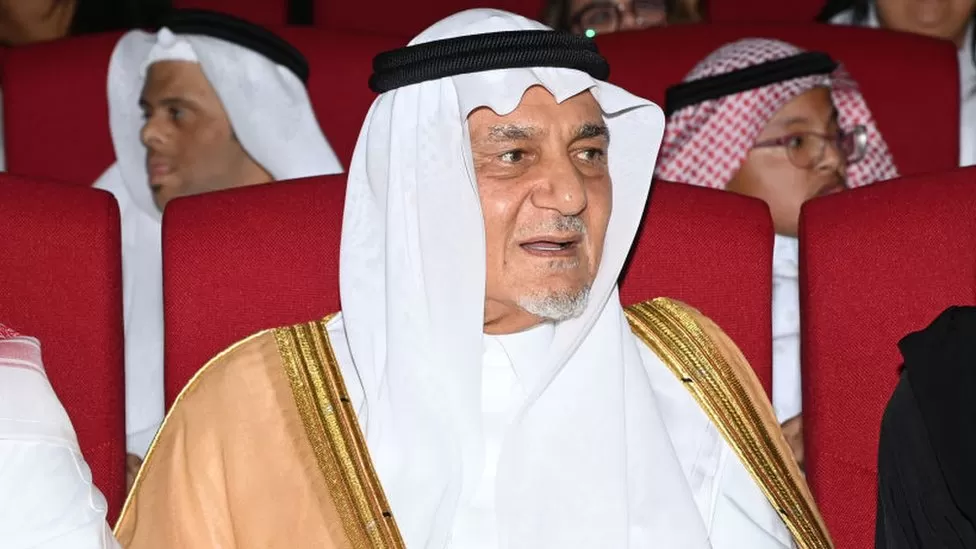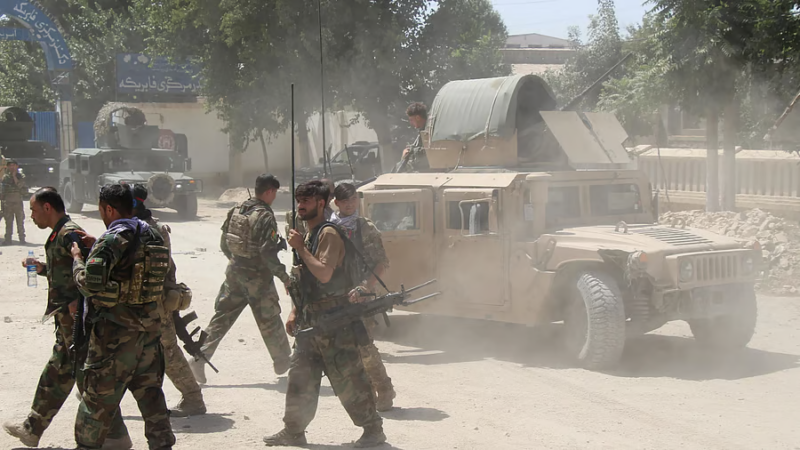A Saudi prince attacks the West, Israel, and Hamas

A speech made by Prince Turki al-Faisal of Saudi Arabia this week on the current violence in the Middle East is unusually frank for a senior member of the Saudi royal family.
It has been widely acknowledged as the clearest indicator yet of the Saudi leadership’s thinking on the situation.
Prince Turki, a widely respected elder statesman in Saudi circles, has publicly condemned both Hamas and Israel for attacking civilians, following Hamas’s 7 October attack on southern Israel and the subsequent Israeli bombardment of Gaza. There were no heroes, he said, only victims.
Such is the groundswell of Arab anger at those Israeli air strikes that Prince Turki, who was addressing a US audience at Rice University in Houston, is a rare Arab voice of criticism of Hamas in the current climate.
The group’s acts, he said, went against Islamic injunctions not to harm civilians. The majority of those killed or kidnapped by Hamas were civilians.
Prince Turki, a careful, thoughtful ex-diplomat and spy chief, balanced his condemnation of Hamas with that of Israel, which he accused of “indiscriminate bombing of innocent Palestinian civilians in Gaza” and the “indiscriminate arrest of Palestinian children, women and men in the West Bank”.
He took issue with the US media’s use of the phrase “unprovoked attack” in reference to the 7 October raid, saying: “What more provocation is required.. than what Israel has done to the Palestinian people for three-quarters of a century?”
He added that “all militarily occupied people have a right to resist occupation”.
Prince Turki also condemned Western politicians for “shedding tears when Israelis are killed by Palestinians”, but refusing to “even express sorrow when Israelis kill Palestinians”.
President Joe Biden has since said, during his visit to Israel, that the US mourned all innocent victims.
So what lies behind this speech, which the prince must have known would be widely reported?
It is unlikely that he would have spoken without first checking in with his country’s Royal Court, run by the all-powerful Crown Prince Mohammed bin Salman, who held talks with Rishi Sunak on Thursday.
Prince Turki has quite a pedigree. His father was the popular and modernising King Faisal, who was assassinated in 1975. His brother was Saudi Arabia’s longstanding foreign minister until his death in 2015.
Prince Turki’s US and British education at Princeton, Cambridge and Georgetown has given him an invaluable perspective on Western culture and thinking, as well as providing him with lifelong contacts amongst decision-makers in Washington and Whitehall.
He went on to become Saudi Arabia’s spy chief, running the foreign intelligence department for 24 years, with special responsibility for Afghanistan.
Following the 9/11 attacks in 2001 he became Saudi Arabia’s ambassador in London and then Washington.
In London, his media spokesman at the embassy was the journalist Jamal Khashoggi, who was eventually murdered inside the Saudi consulate in Istanbul by Saudi government agents in 2018. Saudi Arabia blamed this on an unauthorised “rogue operation”.
Now aged 78, with no formal position in the Saudi government, Prince Turki al-Faisal nevertheless provides an intriguing insight into Saudi thinking on the few occasions when he speaks publicly at international forums.
Saudi Arabia’s rulers don’t like Hamas. In fact, many of the governments in the region don’t like it either. The rulers of Egypt, Jordan, UAE and Bahrain see Hamas and its revolutionary brand of so-called “political Islam” as a threat to their secular rule.
The Palestinian Authority, based on Yasser Arafat’s Fatah party, was effectively chased out of Gaza by Hamas in 2007. Some of its members were thrown off the roofs of high buildings during a short-lived internecine conflict.
Although Hamas maintains a political office in Qatar its main backer is Iran, which has long been a historic rival to Saudi Arabia.
Although the Saudis and Iranians formally agreed to end their dispute in March this year, there remains considerable mutual mistrust between them. Despite this, they have jointly condemned Israel’s bombing of Gaza and reaffirmed their support for a Palestinian state.
It is hard to believe now but only two weeks ago, prior to the Hamas raid, Saudi Arabia was well on the way to normalising ties with Israel, just as the UAE, Bahrain and Morocco have done. This is now on hold.
Several analysts believe that Hamas’s deadly raid into Israel was partly prompted by a desire to derail that normalisation that would have left Hamas and Iran sidelined in a new Middle East.
Will things ever return to the status quo in the region?
Right now, it is hard to see that happening, with a wounded Israel in no mood for compromise and nervous Arab governments eyeing the growing anti-Israel protests on the streets.
But when the current conflict in Gaza ends, as it must do, then it may well be Saudi Arabia’s deep pockets that help fund its reconstruction. It will be worth watching Prince Turki’s speeches for the Saudi view of whatever comes next.






